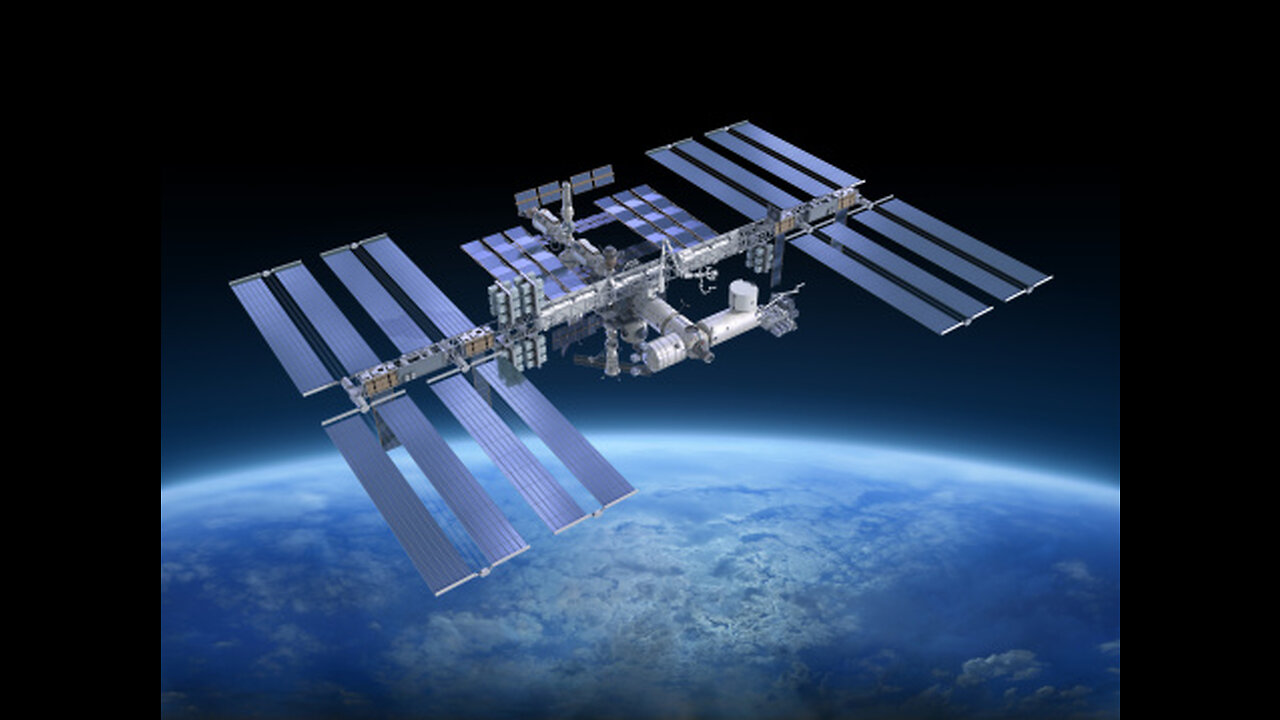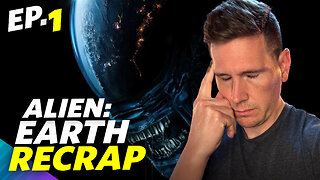Premium Only Content

🚀🌌 "From Earth to Orbit: An Astronaut's Perspective" 🌌🚀
Imagine gazing out of a tiny window, your heart pounding with excitement, as the Earth falls away beneath you. This is the incredible perspective of astronauts embarking on a journey to the International Space Station (ISS).
As the rocket's engines roar to life, you're thrust upward, pressed deep into your seat, and for a moment, gravity seems to lose its grip. The world outside the spacecraft becomes a blur of blue and white as you ascend into the heavens.
Peering through the window, you witness Earth's curvature, a breathtaking view that few have ever experienced. The planet's colors intensify – the deep blue of oceans, the vibrant green of continents, and the stark white of polar ice caps. It's a reminder of the fragile beauty of our home.
Soon, the spacecraft reaches orbit, and you're weightless, floating freely within the confines of the spacecraft. You watch as the sun rises and sets every 90 minutes, casting ever-changing shadows on the ISS. The stars, unobstructed by the atmosphere, twinkle in the inky blackness of space.
Every day, you're treated to 16 sunrises and sunsets, each one more awe-inspiring than the last. The Earth below is a living, breathing masterpiece, with storms, city lights, and natural wonders on full display.
As you approach the ISS, it comes into view—a shining outpost in the cosmos. The sense of camaraderie and scientific discovery fills the spacecraft as you prepare for docking. Your fellow astronauts welcome you with open arms, and you become part of a team dedicated to advancing humanity's knowledge of space.
The astronauts' perspective on a journey to the ISS is one of profound wonder, responsibility, and privilege. It's a view that changes their perspective forever, offering a profound connection to the universe and a renewed commitment to the stewardship of our planet.
Subscribe now to join us on this extraordinary cosmic journey and experience space through the eyes of those who venture beyond our world
For educational and informational purposes. Copyright NASA
-
 1:49:30
1:49:30
The Quartering
3 hours agoCount Dankula Live On Migrant Crisis In Europe, Whiteness & More
90.8K113 -
 3:46:59
3:46:59
Barry Cunningham
6 hours agoBREAKING NEWS: KAROLINE LEAVITT HOLDS WHITE HOUSE PRESS CONFERENCE (AND MORE NEWS)
49.8K41 -
 47:21
47:21
Stephen Gardner
20 hours ago🔥Elon Just Exposed the Most Corrupt Man on Earth - Trump Makes BOLD MOVE!
13.2K92 -
 LIVE
LIVE
The HotSeat
1 hour agoI'm NOT Sorry! Guns Aren’t the Problem—Godless Culture Is
602 watching -
![[Ep 737] Media & Left Attack Prayer and God | Media Loses Control of Narrative | CDL Fraud](https://1a-1791.com/video/fww1/ca/s8/1/m/N/f/d/mNfdz.0kob-small-Ep-736-Make-Gender-Dysphori.jpg) LIVE
LIVE
The Nunn Report - w/ Dan Nunn
1 hour ago[Ep 737] Media & Left Attack Prayer and God | Media Loses Control of Narrative | CDL Fraud
170 watching -
 2:53:12
2:53:12
Right Side Broadcasting Network
7 hours agoLIVE REPLAY: White House Press Secretary Karoline Leavitt Holds a Press Briefing - 8/28/25
97.9K43 -
 1:38:09
1:38:09
Simply Bitcoin
5 hours ago $1.75 earnedIs This Your LAST Chance to Buy Bitcoin Before the GENERATIONAL Bull Run Begins? | EP 1320
16.3K2 -
 LIVE
LIVE
StoneMountain64
3 hours ago#1 WARZONE TACTICIAN + New Battlefield Trailer
158 watching -
 20:03
20:03
Adam Does Movies
4 hours ago $0.43 earnedAlien: Earth Episode 1 - Recrap
11.5K2 -
 15:38
15:38
IsaacButterfield
11 hours ago $0.42 earnedExploiting His Baby For Views (The Island Boys)
8.76K11